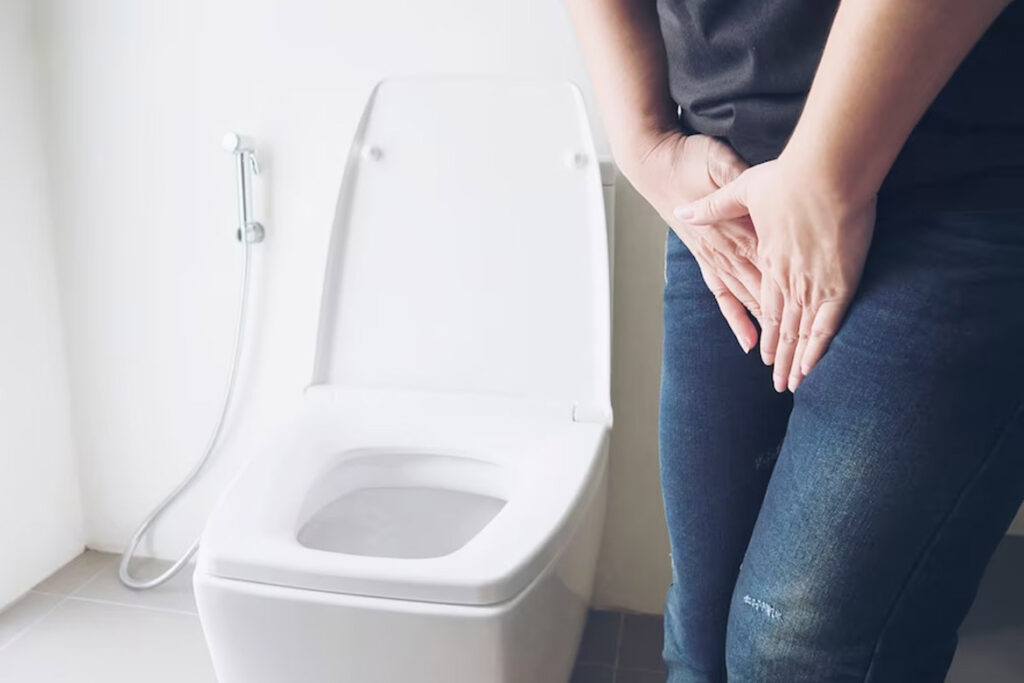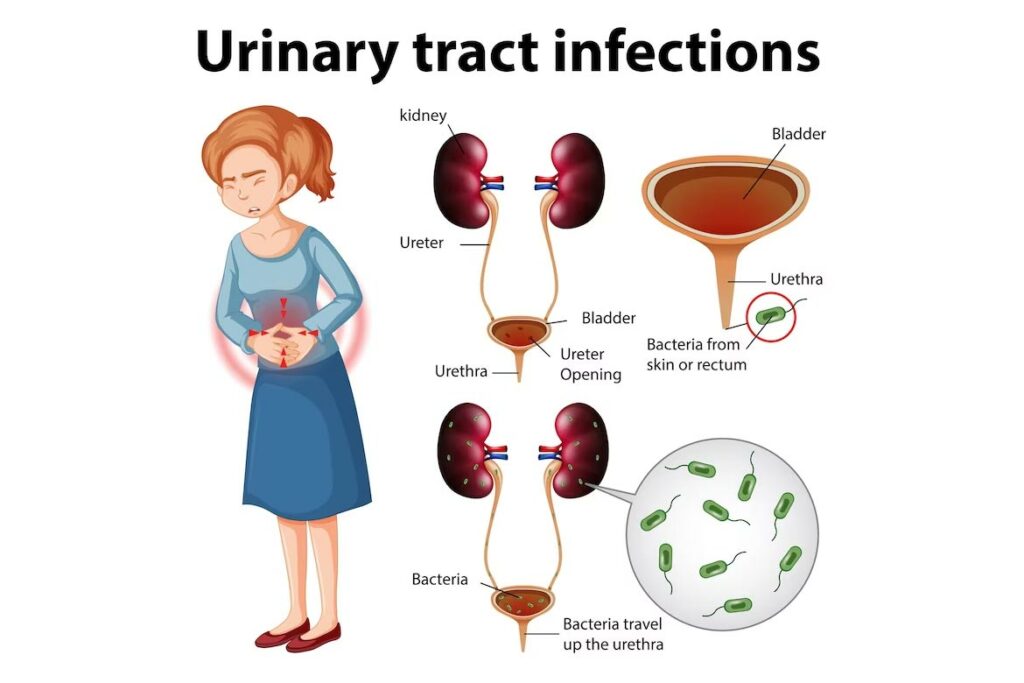Urinary tract infection (UTI) is a common bacterial infection that affects any part of the urinary system, which includes the kidneys, ureters, bladder, and urethra. The urinary system is responsible for filtering waste and excess fluid from the blood and producing urine. UTIs are more common in women than men due to their shorter urethra and closer proximity of the anus to the urinary opening. UTIs can cause symptoms such as pain or burning during urination, frequent or urgent urination, cloudy or bloody urine, pelvic pain, fever, and nausea. UTIs can be treated with antibiotics, but if left untreated, they can lead to serious complications, especially for women’s reproductive health. In this article, we will discuss how UTIs can affect women’s reproductive health and what steps women can take to prevent and treat UTIs.
How UTIs Can Affect Women’s Reproductive Health?
UTIs can have a negative impact on women’s reproductive health in various ways, such as:
Increased risk of pelvic inflammatory disease (PID):
PID is an infection of the female reproductive organs, such as the uterus, fallopian tubes, and ovaries. PID can be caused by sexually transmitted infections (STIs), but UTIs can also increase the risk of developing PID by spreading bacteria from the urinary tract to the reproductive tract. PID can cause symptoms such as lower abdominal pain, abnormal vaginal discharge, fever, and irregular menstrual bleeding. PID can also lead to infertility, chronic pelvic pain, and ectopic pregnancy (a pregnancy that occurs outside the uterus).
Urinary incontinence:

Urinary incontinence is the involuntary leakage of urine. It can be caused by various factors, such as aging, pregnancy, childbirth, menopause, or neurological disorders. However, UTIs can also cause urinary incontinence by weakening the muscles that control the bladder and causing inflammation and irritation of the urinary tract. Urinary incontinence can affect a woman’s quality of life by causing embarrassment, discomfort, and hygiene problems.
Decreased sexual function:
UTIs can also affect a woman’s sexual function by causing pain or discomfort during sexual activity. The inflammation and irritation caused by a UTI can make sex painful or unpleasant, leading to decreased sexual desire and satisfaction. Moreover, if a woman experiences recurrent UTIs, she may develop a negative association between sex and pain, leading to a reduced interest in sex altogether.
Pregnancy complications:
UTIs can also have serious consequences during pregnancy. Pregnant women are more prone to developing UTIs due to hormonal changes, increased pressure on the bladder, and reduced immunity. If left untreated, UTIs can lead to premature labor, low birth weight, and a higher risk of infection for both the mother and the baby. Pregnant women who experience UTI symptoms should seek medical attention immediately to prevent these complications.
Interference with fertility treatments:
Women undergoing fertility treatments may also be at risk for UTIs due to the frequent use of catheters and other medical devices that can introduce bacteria into the urinary tract. UTIs can interfere with fertility treatments by causing inflammation and infection of the reproductive organs, potentially delaying or reducing the chances of a successful pregnancy.
How to Prevent and Treat UTIs?

Preventing and treating UTIs is essential to maintaining reproductive health in women. Some of the steps that women can take to prevent and treat UTIs are:
Drink plenty of fluids:
Drinking enough water and other fluids can help flush out bacteria from the urinary tract and prevent them from sticking to the bladder wall. Aim for at least eight glasses of water per day or more if you have symptoms of a UTI.
Wipe from front to back:
After using the toilet, always wipe from front to back to avoid spreading bacteria from the anus to the urinary opening. This can help prevent UTIs as well as STIs.
Urinate before and after sex: Urinating before and after sex can help clear out any bacteria that may have entered the urinary tract during sexual activity. This can help prevent UTIs as well as STIs.
Avoid irritating products:
Avoid using products that may irritate the urinary tract, such as scented soaps, douches, sprays, or powders. These products can alter the natural balance of bacteria in the urinary tract and increase the risk of infection.
Wear cotton underwear:
Cotton underwear can help keep the genital area dry and breathable, reducing the growth of bacteria. Avoid wearing tight-fitting or synthetic underwear that may trap moisture and heat, creating a favorable environment for bacteria.
Change sanitary pads or tampons frequently:
During menstruation, change sanitary pads or tampons at least every four to six hours to prevent bacterial growth and infection. Avoid using scented or colored products that may irritate the urinary tract.
Take cranberry supplements or juice:
Cranberry supplements or juice may help prevent UTIs by preventing bacteria from sticking to the bladder wall. However, cranberry products are not a substitute for antibiotics and should not be used to treat an existing UTI.
Consult a doctor:

Read more: 10 natural remedies to fight mosquito borne diseases
If you have symptoms of a UTI, such as pain or burning during urination, frequent or urgent urination, cloudy or bloody urine, pelvic pain, fever, or nausea, consult a doctor as soon as possible. A doctor can diagnose a UTI by testing a urine sample and prescribe antibiotics to treat the infection. Follow the doctor’s instructions and complete the full course of antibiotics to prevent recurrence or complications.
Conclusion:
UTIs are common bacterial infections that can affect any part of the urinary system. Women are more prone to developing UTIs due to their anatomy and physiology. UTIs can have serious consequences for women’s reproductive health, such as increased risk of PID, urinary incontinence, decreased sexual function, pregnancy complications, and interference with fertility treatments. Therefore, it is important for women to prevent and treat UTIs by following good hygiene practices, drinking plenty of fluids, urinating before and after sex, avoiding irritating products, wearing cotton underwear, changing sanitary pads or tampons frequently, taking cranberry supplements or juice, and consulting a doctor if symptoms occur.
